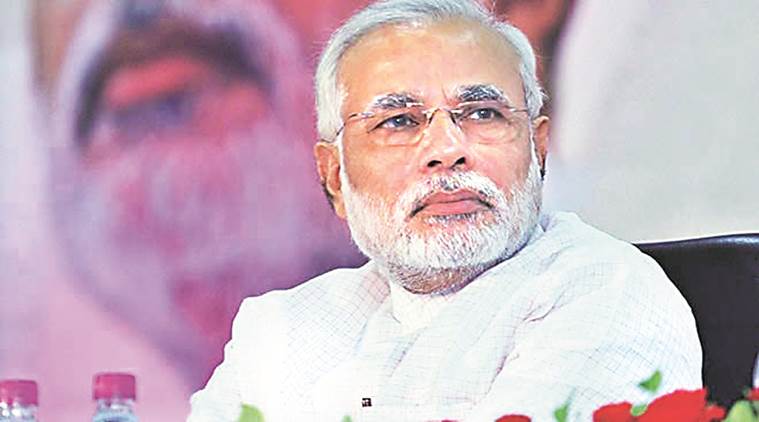 Prime Minister Narendra Modi.
Prime Minister Narendra Modi.
Commenting on the Narendra Modi government, Munsif’s editorial of May 26 notes: “Democratic and secular values have weakened in the country. Communalism has received encouragement and every effort is being made to divide the country on religious and caste basis. Efforts are being made to impose an ideology on a country rich in cultural diversity. There has been an increase in the oppression of minorities and Dalits. Institutions in the country are in danger. Even the judges of the highest court have been compelled to plead for saving democracy. Unemployment has risen to a high levels. The promise of providing one crore jobs annually has proved to be a ‘jumla’. The youth are being given shameless advice about selling paan and pakodas. Farrmers suicides haven’t stopped. History is being distorted, and inflation has touched unprecedented heights. Fuel prices are touching a new high. On no front has the government attained success. It has wasted a golden opportunity to take the country’s economy to new heights.”
Siasat’s, editorial on May 25 notes: “The countdown to the end of the government’s five-year tenure has started. Keeping that in mind, the government’s performance report talks of several successes. But many of them have no direct relevance to the people of the country. The government has avoided saying anything about the promises it had made. A campaign has been launched to achieve power at any cost and annihilate the Opposition. All these are against the country’s constitutional principles and the needs of the present time.”
Bypoll results
Roznama Khabrein’s editorial of June 2 notes: “The real tussle between the BJP and the Opposition took place in Kairana in Uttar Pradesh.The entire UP cabinet, including Yogi Adityanath, put its weight behind the campaign. The prime minister himself addressed a rally in Baghpat, near Kairana, a day before the election. A song that talked of ganna versus Jinnah was also sung. Pakistan was also brought in to the picture. Efforts were made to raise the heat on communalism. But none of these tactics were helpful. The ill-treatment of farmers, breach of promises and loud talk resulted in Gorakhpur and Phulpur being repeated in Kairana. Once again, questions have been raised over Yogi Adityanath’s leadership, his weakening of grip on voters and the lack of coordination with party cadres. In Kairana, a united Opposition defeated the BJP in its stronghold of west UP. The Rashtriya Lok Dal succeeded in mobilising Jats to support a Muslim candidate.”
Akhbar-e-Mushriq, in its editorial on the same day, writes: “The byelections in Gorakhpur and Phulpur were precursors to Opposition unity. The elections in Kairana and other places have consolidated the bonds between Opposition parties. There will be a test in Rajasthan, Madhya Pradesh and Chhattisgarh, where assembly elections are due at the end of the year. If the Opposition remains united, the BJP will have to bite the dust in these states as well.”
Shakeel Shamsi, editor of Inquilab, in his signed column on June 1, writes: “The myth of the Modi wave has been broken. The fact is that the unity of the Opposition has pushed the boat of BJP down a whirlpool.”
Tuticorin’s tragedy
Commenting on the tragic death of 11 persons and injury to several others as a result of firing on those protesting against the copper factory at Tuticorin, Roznama Khabrein’s editorial of May 25 notes: “Why was there no dialogue with protesters? There could have been valid reasons for the factory to exist. But the administration could have explained them to the protestors. Was firing against the protestors the only recourse available to it? More than two lakh people had protested against the opening of a new unit of the factory last February. The government should have woken up to the dangerous situation at that time itself. One cannot support the violent attitude of the protesters. But these days, several kinds of environmental hazards are brought to light. How can this be ignored?”
Opposing the closure of Sterlite factory, Akhbar-e-Mushriq’s, editorial of May 31 notes: “The state government gave a Nadir Shahi order to close the factory. But it did not pay any attention to the plight of about 50,000 persons benefiting from the factory… The government should have forced the owners of the factory to adopt environmentally solid and foolproof ways of preventing pollution… This is the worst example of opportunism and hypocritical madness.”